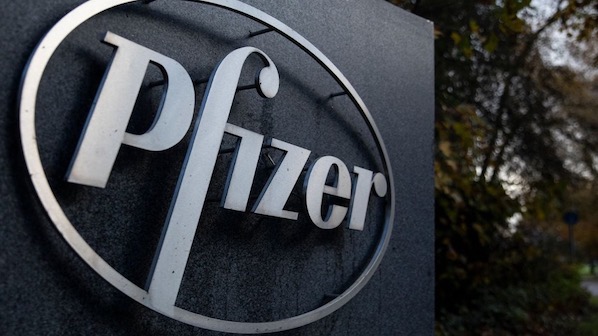FDA clears Pfizer’s pneumococcal vaccine for infants and children
April 30, 2023
Source: drugdu
 345
345
Delilah AlvaradoAssociate Editor

A general view of the Pfizer Headquarters sign on November 10, 2020 in Tadworth, England. Dan Kitwood via Getty Images
Dive Brief:
- Pfizer on Thursday gained U.S. approval of its newest pneumococcal conjugate vaccine for use in children and infants, helping it compete with a rival shot from Merck & Co. that won a similar OK last year.
- Pfizer’s vaccine, called Prevnar 20, is designed to protect against infection by 20 strains of the bacteria — seven more than the company’s prior Prevnar 13 version. It has been approved in adults since 2021.
- Last July, Merck won approval in children of its Vaxneuvance vaccine, which protects against 15 strains. Both companies could soon face more competition as the market has sparked interest from other drugmakers.
Dive Insight:
While vaccines for the bacterial infection are widely available, thousands of cases still lead to hospitalization and death in the U.S. each year. In response, Pfizer, Merck and others have worked to develop new shots that offer better protection, particularly against strains that weren’t previously covered by Prevnar 13.
These second-generation shots are meant to improve upon older versions like Merck’s Pneumovax 23, which was first launched in 1983. That company’s follow-on, Vaxneuvance, gained clearance in adults in 2021 and a year later won expanded use in children aged 6 weeks through 17 years.
Pfizer’s latest approval was supported by clinical testing that compared Prevnar 20 to Prevnar 13. The company reported positive Phase 3 results in August. The trial was one of several to indicate the shot worked just as well and was safe in infants and children. In the trial, immune responses were evaluated one month after a third and fourth dose of the vaccine. Immune responses were compared to those with Prevnar 13.
Other vaccine developers aim to get involved, too. Biotechnology company Vaxcyte recently reported positive Phase 2 study results for an experimental vaccine it’s developing in older adults. The company said immune responses were comparable to Pfizer’s Prevnar 20, and that it will start Phase 3 testing later this year.
Meanwhile, GSK is testing a shot it gained through a $2.1 billion acquisition of Affinivax last May.
The Center for Disease Control’s advisory committee on immunization practices is set to hold a meeting in June, when it could discuss immunization recommendations.
By editorRead more on
- The first subject has been dosed in the Phase I clinical trial of Yuandong Bio’s EP-0210 monoclonal antibody injection. February 10, 2026
- Clinical trial of recombinant herpes zoster ZFA01 adjuvant vaccine (CHO cells) approved February 10, 2026
- Heyu Pharmaceuticals’ FGFR4 inhibitor ipagoglottinib has received Fast Track designation from the FDA for the treatment of advanced HCC patients with FGF19 overexpression who have been treated with ICIs and mTKIs. February 10, 2026
- Sanofi’s “Rilzabrutinib” has been recognized as a Breakthrough Therapy in the United States and an Orphan Drug in Japan, and has applied for marketing approval in China. February 10, 2026
- Domestically developed blockbuster ADC approved for new indication February 10, 2026
your submission has already been received.
OK
Subscribe
Please enter a valid Email address!
Submit
The most relevant industry news & insight will be sent to you every two weeks.



